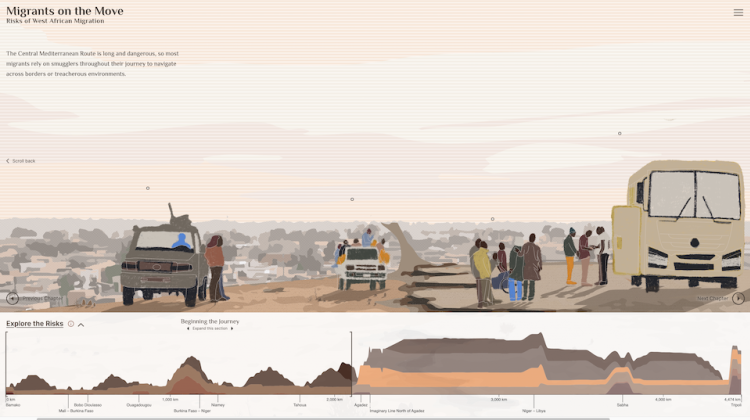Migrants on the Move

How does food insecurity affect irregular migration, and what role can a needs-based humanitarian response play? A collaboration between the Civic Data and Design Lab, International Food Policy Research Institute (IFPRI), and the World Food Programme (WFP) takes a route-base approach to looking at irregular migration in West Africa—examining migrant origins, their transit experience, and the situation where their journey stalls or ends. The mixed method study includes case studies of the Ténéré desert crossing, across the south-central Sahara, for Malian and Libyan migrants.
The website, “Migrants on the Move,” visualizes findings related to the IFPRI and WFP report on irregular migration from West Africa. The website features data analysis of risks that migrants face while traveling from West Africa to Libya while emphasizing the related report findings that migrants often become extremely vulnerable and food insecure throughout their journey. The mapped migration routes, illustrations, and data visualizations shown on the “Migrants on the Move” website highlight a variety of risk factors, including food insecurity, lack of access to resources, the reliance on smugglers, extreme heat exposure, and physical violence and abuses.


